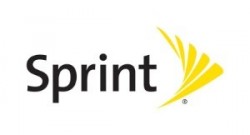 After weeks of following LightSquared’s network trials and tribulations with the slim hope that the beleaguered network would somehow find a way to survive the FCC’s rejection of its network, Sprint has officially terminated its spectrum and network hosting agreement with the company and has returned the $67 million payment that formalized the arrangement.
After weeks of following LightSquared’s network trials and tribulations with the slim hope that the beleaguered network would somehow find a way to survive the FCC’s rejection of its network, Sprint has officially terminated its spectrum and network hosting agreement with the company and has returned the $67 million payment that formalized the arrangement.
This latest announcement is expected to further compound the problems present for LightSquared as former wholesale customers scramble to find alternatives to the company while founder Philip Falcone attempts to file suit against the FCC to appeal the rejection of the network rollout and subsequent revocation of its previously granted provisional waiver, with Falcone retaining a new law firm specifically for the suit.
Falcone also faces litigation from shareholders in his Harbinger Capital Partners investment firm as the disgruntled investors are seeking answers on why the company continues to lose money despite being given promises that investing in the fund and in turn the network could not fail. As Harbinger Capital holds 60% of LightSquared, with the other 30% held between other outside investors, the fact that it is operating without so much as a CEO is a bad sign for many that are following the company, including investors. Below, Sprint’s statement on the termination in full:
“Sprint has been and continues to be supportive of LightSquared’s business plans and appreciates the company’s efforts to find a resolution to the interference issues impacting its ability to offer service on the 1.6 GHz spectrum. However, due to these unresolved issues, and subject to the provisions of the agreement, Sprint has elected to exercise its right to terminate the agreement announced last summer. We remain open to considering future spectrum hosting agreements with LightSquared, should they resolve these interference issues, as well as other interested spectrum holders.
“Late last year, both companies agreed to halt deployment design and implementation of LightSquared’s network to ensure that Sprint’s Network Vision project remained on schedule. While unfortunate, termination of the agreement will have no impact on Sprint’s current customers and is not material to Sprint’s ongoing business operations. Network Vision remains on schedule and on budget, and we look forward to begin launching our 4G LTE network mid-year.
“Per the terms of the agreement, Sprint has returned $65 million in prepayments LightSquared made to cover costs that were not ultimately incurred by Sprint.”
The statement that Sprint halted work on LightSquared’s part of the network in favor of its own Network Vision reconfiguration (emphasis mine) means that Sprint had already decided to reconsider its agreement with LightSquared long before today’s announcement, suggesting that the payment was meant more as a good faith measure used by LightSquared intended to reassure Sprint, rather than the typical payment used to bind a long-term agreement. Now that Sprint is falling back on Clearwire for the rest of its LTE plans outside of the Network Vision reconfiguration, LightSquared now faces an uphill, but ultimately losing battle in order to regain the credibility it has lost within the past month and a half.
For its part, LightSquared has issued its own diplomatic press release on today’s news, with the complete statement found below:
“These regulatory delays are unfortunate because they will deprive the American people of the benefits of additional competition in the wireless industry,” said Doug Smith, chief network officer and interim co-chief operating officer of LightSquared.
“For LightSquared, Sprint’s decision will enhance our working capital and provide more flexibility,” he said.
LightSquared’s objective, through its wholesale business model, is to provide increased competition and lower prices in the telecommunications industry, and to bring broadband cellular phone service to rural areas currently underserved. LightSquared remains committed to moving forward with its nationwide network build out.
As LightSquared moves forward, it will also continue to focus on providing mobile satellite voice and data communications to private industry, public safety organizations and emergency responders across the United States and throughout North America.
“Sprint has been a valued partner to LightSquared and we look forward to working together in the future,” said Mr. Smith.
In an ironic twist of fate, the satellite that LightSquared was to use to deliver the satellite retransmission part of the LTE service was knocked out for two weeks this month during the widely reported solar storm event that affected aviation traffic, meaning that were the network actually live and operating, it would have suffered a massive service interruption with no backup available.